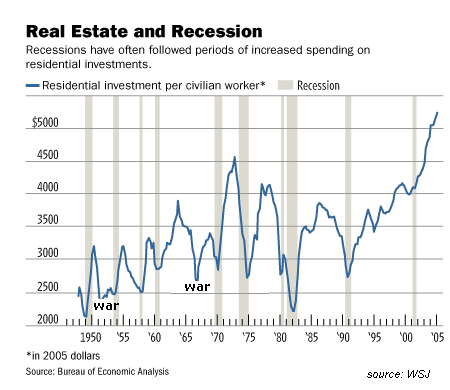

|
| weblog/wEssays | home | |
|
Doom and Gloom: What's the Point? (February 4, 2006)  You may wonder, what's the point of this weblog's incessant doom-and-gloom forecasting
of a coming economic breakdown? The point is to protect yourself from financial calamity.
You may wonder, what's the point of this weblog's incessant doom-and-gloom forecasting
of a coming economic breakdown? The point is to protect yourself from financial calamity.
Take a look at all the charts which illustrate the many listings under "Financial Meltdown Watch" in the sidebar, and ask yourself, What if this data is true? The sources are there, so please check the accuracy and reliability of the charts yourself. If the data is true--unprecedented public and private debt loads, unprecedented trade deficits, unprecedented levels of highly leveraged derivatives, an unsustainable housing bubble poised to burst, and so on, then ask yourself: Can all these unprecedented levels of risk have no consequences? It would be difficult to argue that there are absolutely no risks associated with these elevated levels of debt and deficit. So given that there are potential consequences, ask yourself: do the odds favor a positive outcome or a negative outcome? If you examine the preponderence of data, there is only one possible conclusion: the only likely consequence of such enormous imbalances is a re-balancing, not a continuation of stretching an already-taut rubber band of ever expanding debt and ever-expanding government and trade deficits. Since the rubber band has been stretched to the breaking point, such a re-balancing may well be sudden, rather than the gradual unwinding the housing and stock market industries are projecting. So what can you do to protect whatever assets and security you possess? Cut expenses so you can live on one salary or part-time work; pay off debt; save as much cash as you can; sell any gashog vehicles you currently own; sell off any investment real estate you have that isn't owned free and clear; learn to grow your own food, or at least some of it; and diversify any retirement or IRA assets you have into precious metals and international equities, so if the dollar and the U.S. economy do tank, you'll have some chance of conserving more of your assets than if you held only U.S. bonds and stocks. Nothing fancy here, just common sense. * * * copyright © 2006 Charles Hugh Smith. All rights reserved in all media. I would be honored if you linked this wEssay to your site, or printed a copy for your own use. * * * |
||
| weblog/wEssays | home |